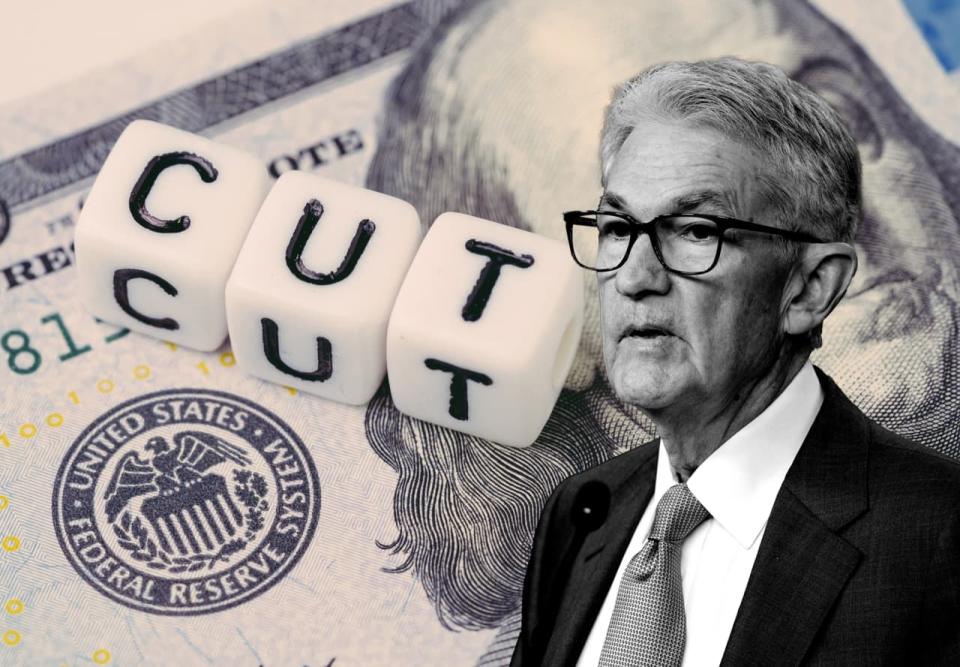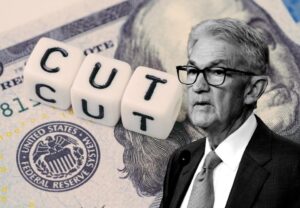Before the Fed lowers interest rates, make these 4 money moves to prepare your finances


The Federal Reserve is expected to lower interest rates soon — and the central bank’s move could bring opportunities for borrowers, savers and spenders alike.
Fed Chair Jerome Powell said last week that “the time has come” for rate cuts — leading investors and analysts to speculate that the first cut could come as early as next month, when the Fed next meets, and that more cuts will come over the following 12 months.
Most Read from MarketWatch
The current federal-funds rate is in the range of 5.25% to 5.5%. The Fed made 11 rate hikes starting in March 2022 to combat soaring inflation, but those increases have made it harder for households already grappling with rising prices: Borrowing is more expensive, and interest rates for mortgages, credit cards and car loans have all gone up. Those same high rates have benefited savers, however, who can take advantage of high-yield savings accounts and certificates of deposit promising rates of return beyond 5%.
Rate cuts are likely to ease headaches for some households as borrowing becomes less expensive, but people who have cash parked in high-interest accounts might not earn as much as they do now. “It’s all about optimizing,” said Bankrate senior economic analyst Mark Hamrick.
How can you optimize your own financial situation? Here are three guiding principles and one easy fix to get the most out of your cash.
One quick move: Put next year’s spending money into a CD
A certificate of deposit, or CD, allows you to earn interest at a fixed rate while locking up your money for a set period. While rates for high-yield savings accounts will fall immediately following rate cuts, a CD can buy you additional time to earn interest on your cash at today’s higher rates.
Shorter-term CDs with terms ranging from 30 days to a year typically have lower rates of return than longer-term CDs that lock up money for periods of up to five years. At the moment, CDs with terms of around a year offer rates of around 5% or slightly higher, which are comparable to or higher than the rates for longer-term CDs. That’s because many banks are hesitant to make long-term predictions about the economy.
For savers planning to make a significant purchase within the next year or so, it’s smart to invest that cash in a CD with a term matching the goal’s time horizon, said Jaime Eckels, a wealth-management partner and financial planner at Plante Moran Financial Advisors.
But this approach only works well when the person knows exactly how and when they are going to spend the money, she added. Over a longer term, the money may not earn as much in a CD as it would in the stock market: The S&P 500’s SPX annualized rate of return was 12.03% over the past 10 years, according to Dow Jones Market Data. But the market can be unpredictable in the short run.
“If you are going to need money for a house and you’ve got a $100,000 down payment, you wouldn’t put it in the market and hope for the best,” Eckels said.
People need to shop around to find the best rates for CDs and high-yield savings accounts, but opting for either one is better than not saving at all, Hamrick noted. When asked about their biggest financial regret, Americans were more likely to cite not saving enough for retirement or emergency expenses than they were to say taking on too much credit-card or student-loan debt, according to a new Bankrate survey.
If you’re trying to save money: Prioritize liquidity
If you don’t have a clear spending goal at the moment, a high-yield savings account gives you access to your money when you need it, financial planners say. In contrast, withdrawing funds from a CD before the end of the set term often results in penalties, and those fees are higher for longer-term CDs.
Prioritizing liquidity is essential when preparing for emergencies, Hamrick noted, in order to avoid turning to more expensive forms of debt such as credit cards or personal loans. “[T]hat causes some dominoes to fall,” he said.
If you have credit-card debt: Prioritize negotiating a lower rate and consider a balance transfer
Even after the Fed starts cutting rates, credit-card interest rates will not go down significantly, according to financial experts.
The average credit-card rate in the U.S. is currently 24.92%, according to LendingTree, while the maximum annual percentage rate, or APR, for the average new-card offer is 28.34%.
Consumers with credit-card debt should keep paying down their debt per their original plan, and take proactive steps such as calling the credit-card company to negotiate a lower interest rate, said Bobbi Rebell, a financial planner and CEO of Financial Wellness Strategies, a finance-consulting company for employee financial wellness.
Another approach would be transferring the credit-card balance to a card that has an introductory 0% rate, Eckels noted.
If you’re waiting to make a big purchase: Don’t time the market
If you’re planning to buy a big-ticket item, like an expensive computer or a kitchen appliance, it makes sense to not put it on a credit card right now. But if you’re looking to buy a house, waiting won’t do much good, according to financial planners.
Interest rates aren’t the only factor affecting the cost of buying a house. Home prices are also subject to demand from buyers, and although mortgage rates tend to move in sync with the federal-funds rate, they have come down in the past month.
“You can’t time the [housing] market. Nobody knows how to do it,” Eckels said. When rates come down, there might be more demand and more buyers, which can then push up home prices, she noted.
At the same time, people sometimes forget that they can refinance a mortgage, she added. They won’t necessarily be stuck with the same rate forever, whether they have a fixed-rate or an adjustable-rate mortgage.
The bottom line: Don’t let the thought of rate cuts take over your financial decision-making, Rebell said.
“You should always be aware of what’s going on in the macroeconomy, but don’t be so absorbed that you can’t move forward with this life decision that makes sense to you at that time,” she said.







